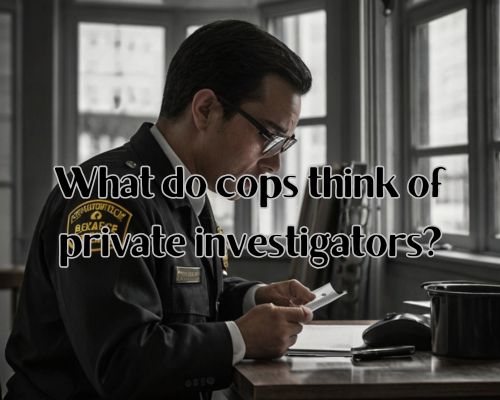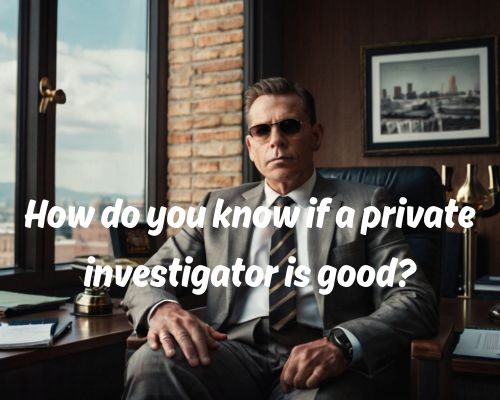If you’re based in West Palm Beach, Florida, and considering working as a private investigator (PI) in New York, you’re likely wondering whether you need a private investigator license to operate legally. The world of private investigation is highly regulated, and navigating the licensure process can be challenging without accurate information. In this article, we’ll break down the licensing requirements for private investigators in New York, discuss how they compare to Florida’s regulations, and explore key factors to consider if you’re pursuing a career in private investigation.

Understanding Private Investigator Licensing Requirements in New York
In New York, obtaining a private investigator license is not just a formality—it’s a legal requirement. The state has strict regulations to ensure that individuals conducting investigations are qualified and adhere to ethical standards. The New York Department of State oversees the licensing process, and applicants must meet specific criteria, including:
- Experience Requirements
Applicants must demonstrate at least three years of full-time investigative experience, which can be obtained through working with a licensed private investigator, law enforcement agency, or a similar organization. This experience ensures that PIs have the practical knowledge to conduct investigations ethically and effectively. - Education and Testing
While there are no specific educational requirements, candidates must pass a rigorous written exam administered by the state. The exam covers topics such as state laws, investigative techniques, and ethics. - Background Checks
New York conducts thorough background checks on all applicants to verify their integrity and ensure they have no criminal record that could compromise their ability to perform investigations lawfully. - Licensing Fees
Applicants must pay a non-refundable application fee, which can range from $400 to $500, depending on the type of license they’re seeking.
If you’re based in West Palm Beach but planning to work in New York, you’ll need to comply with these requirements. Unlike Florida, New York does not have reciprocity agreements for PI licenses, meaning you’ll need to apply for a separate license to operate there legally.
How New York Licensing Differs From Florida
Florida’s private investigator licensing requirements, managed by the Department of Agriculture and Consumer Services, share some similarities with New York but also have key differences:
- Experience Requirements: Florida also requires experience, but it allows applicants to substitute educational qualifications, such as a degree in criminal justice, for some of the required experience.
- Reciprocity: Florida has reciprocity agreements with other states, but New York is not one of them.
- Continuing Education: Florida mandates ongoing education to maintain licensure, ensuring PIs stay updated on laws and investigative practices.
For West Palm Beach residents considering investigations in New York, it’s essential to account for these differences and prepare to meet New York’s unique standards. See https://aliprivateinvestigatortampa.com/.
Why Licensing Is Essential for Private Investigators
Operating without a license in New York can lead to severe penalties, including fines, legal action, and even criminal charges. Additionally, being licensed builds credibility with clients, law enforcement agencies, and courts. A license also ensures you can access certain resources, such as databases and records that are restricted to licensed investigators.
If you’re working out of West Palm Beach, this credibility is crucial when marketing your services to clients in New York. Many clients, especially those seeking high-profile investigative services, prioritize hiring licensed professionals to protect their interests and ensure the legality of the investigation.
Steps to Obtain a Private Investigator License in New York
- Assess Your Eligibility
Determine whether you meet the experience and background requirements. If you lack sufficient experience, consider working under a licensed PI in Florida to gain the necessary skills. - Submit Your Application
Complete and submit the application form available on the New York Department of State’s website. Be sure to provide accurate documentation of your experience and pay the required fee. - Prepare for the Licensing Exam
Study New York’s laws, investigative techniques, and ethical standards to pass the state exam. Consider enrolling in preparatory courses or studying guides to improve your chances of success. - Await Approval
Once you’ve passed the exam, your application will undergo a final review. If approved, you’ll receive your license and can begin operating legally in New York. - Market Your Services
After licensure, focus on building your client base. If you’re based in West Palm Beach but want to work cases in New York, emphasize your dual-state expertise as a unique selling point.
Opportunities for Private Investigators in New York
New York offers a diverse range of opportunities for licensed private investigators, including:
- Corporate Investigations: Conducting background checks, employee fraud investigations, and due diligence for businesses.
- Domestic Cases: Handling child custody, divorce, and infidelity investigations.
- Insurance Investigations: Identifying fraudulent claims and gathering evidence for insurance companies.
- Legal Support: Assisting attorneys with evidence collection, witness interviews, and case preparation.
These opportunities are particularly lucrative for West Palm Beach investigators looking to expand their client base into a larger, more competitive market. Visit https://aliprivateinvestigatortampa.com/ for more.
Tips for West Palm Beach Investigators Expanding to New York
If you’re a private investigator in West Palm Beach, expanding your services to New York can be a strategic move. Here are some tips to make the transition seamless:
- Leverage Local Connections
Build relationships with legal professionals, businesses, and law enforcement in New York to establish a network of contacts. - Highlight Dual-State Expertise
Market your understanding of Florida and New York regulations as a competitive advantage to attract clients requiring investigations across state lines. - Stay Compliant
Regularly review New York’s licensing and compliance requirements to avoid legal pitfalls. - Use Technology
Invest in advanced investigative tools and software to enhance efficiency and stay competitive in New York’s fast-paced environment.
FAQs About Private Investigator Licensing in New York
1. Can I operate in New York with my Florida private investigator license?
No, New York does not recognize Florida’s PI license. You’ll need to apply for a separate license in New York.
2. How long does it take to get a PI license in New York?
The process can take several months, depending on how quickly you meet the requirements and pass the exam.
3. Are there any exemptions to the licensing requirement?
Certain professionals, such as attorneys, may be exempt from licensure when conducting investigations related to their practice.
Conclusion
Whether you’re a seasoned private investigator in West Palm Beach or a newcomer considering opportunities in New York, understanding the licensing requirements is essential. New York’s rigorous process ensures that private investigators maintain the highest standards of professionalism and ethics. By obtaining a license, you can operate legally, gain credibility, and tap into the lucrative investigative opportunities in one of the most dynamic markets in the country.
If you’re ready to take the next step, start by assessing your qualifications and preparing for New York’s licensing exam. With determination and the right approach, you can expand your private investigation career from the sunny streets of West Palm Beach to the bustling avenues of New York.

